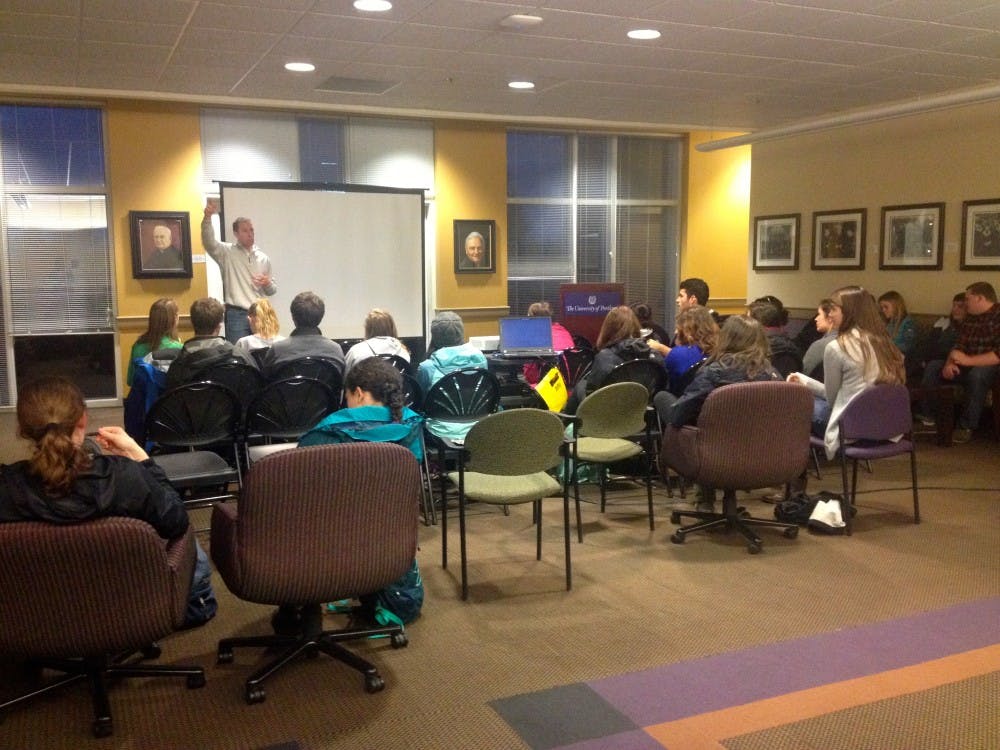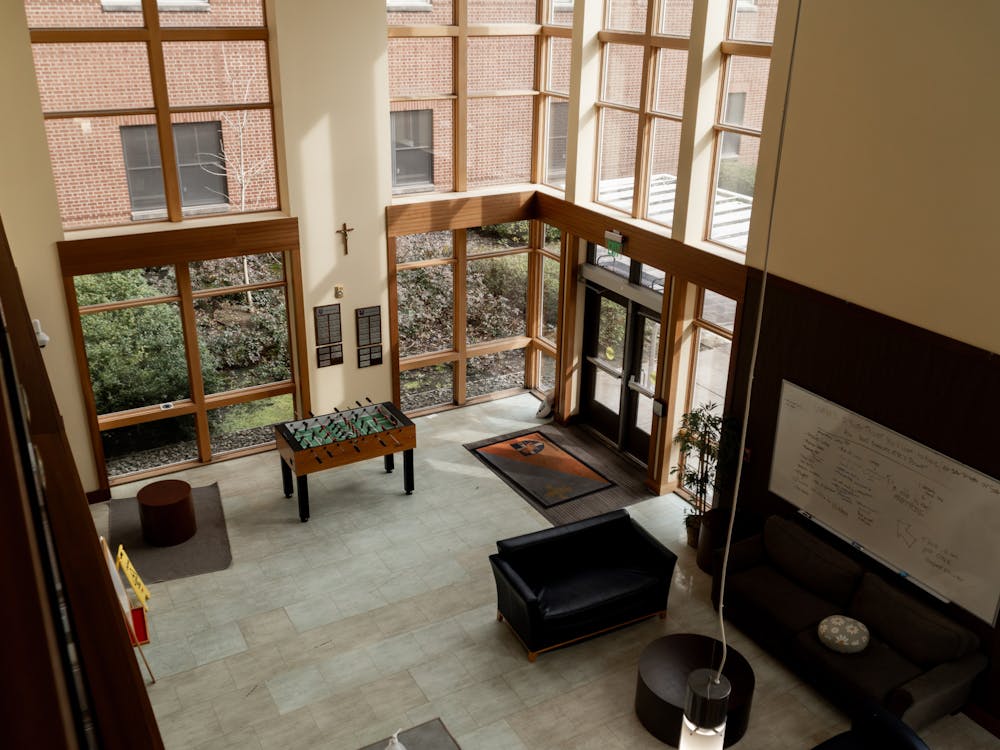Seniors released a collective slow exhale as they realized the realities of living life with a small paycheck during last night’s first installment of “Life after the Bluff.” The Student Alumni Association launched the series with a budgeting 101 lecture by ’99 alum Doug Kienzle.
Kienzle spoke frankly about budgeting struggles graduating seniors were going to face as they walked out of Chiles Center with a diploma in one hand and their student debt in the other.
He opened the presentation with the number “30,000” on the screen (his student debt after graduation) and then presented a realistic budget from the average starting salary of someone in the business school. Before even buying food for the month, the bank was broken.
“As you can see, this recent graduate is living the American dream,” Kienzle joked. “The dream being, spending more than you make.”
The audience, primarily seniors, looked horrified at this proposition and joked they clearly were never going to be able to go out for a drink again, or buy food for that matter. Many seniors cited a need for budgeting and basic finance help as their reason for attending the lecture.
“I don’t have a job yet, I’m hoping to soon get a job, but my finances are going to start dwindling,” senior Chelsea Roberts said. “I need to start being way more smart about my money.”
During a long question period after the presentation, Kienzle was asked about every budgeting topic from 401k options to whether or not to apply for a credit card.
“Life’s getting real next year,” senior Alex Quackenbush said. “I just signed a lease on my first real apartment…it is kind of scary.”
Doug Kienzle's budgeting tips:
- Even though you’re broke, try to save at least 10 percent of your paycheck. Have it taken out directly so you don’t even see that money. You’ll thank yourself later.
- Budget for every dollar earned. Don’t have any money just floating around.
- Account for every dollar spent. Don’t forget about small expenses, like your daily $3 on coffee - those are the kinds of things that add up quickly.
- Use tools to help: Reading books and magazines on finance, the envelope system or a budgeting app like mint.com
- Get credit cards, always pay them off every month. If you cannot trust yourself to do this, do not get credit cards.
- If you know you want to do something in the future that is a big expense (i.e. buy a house have a wedding) try to put a little away every month. Even if it’s only increments of $25 you’ll be thankful you did.








